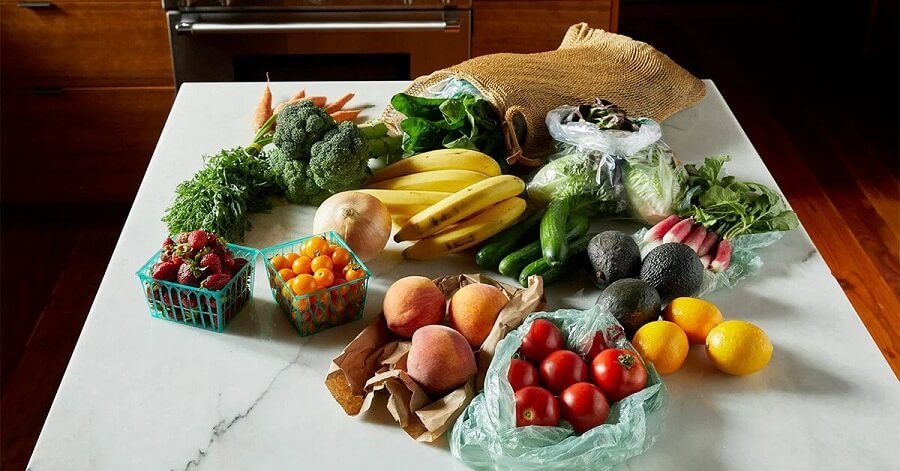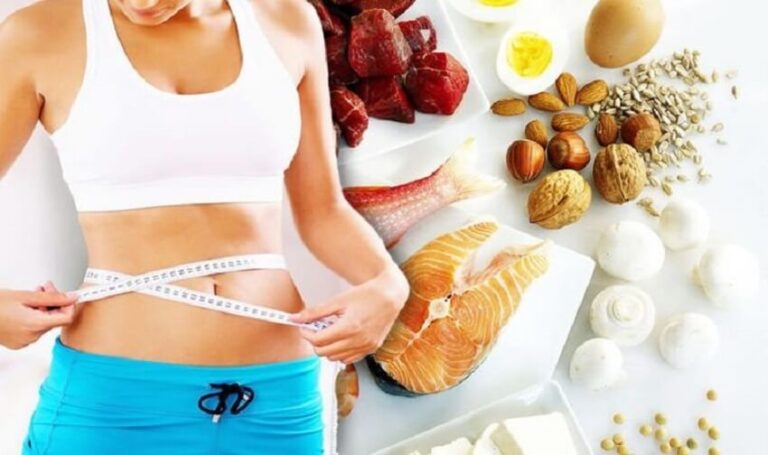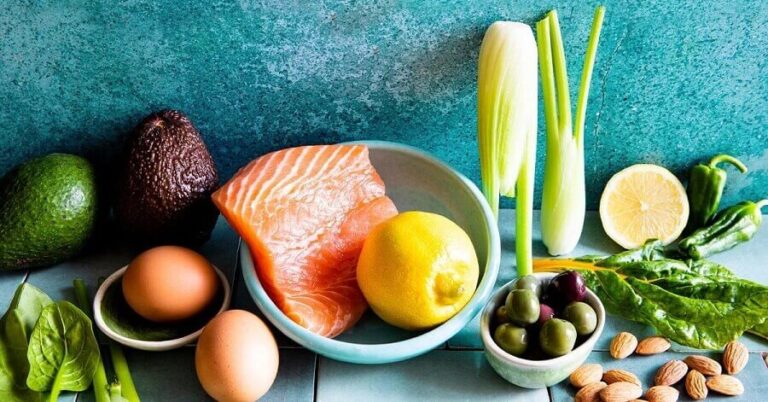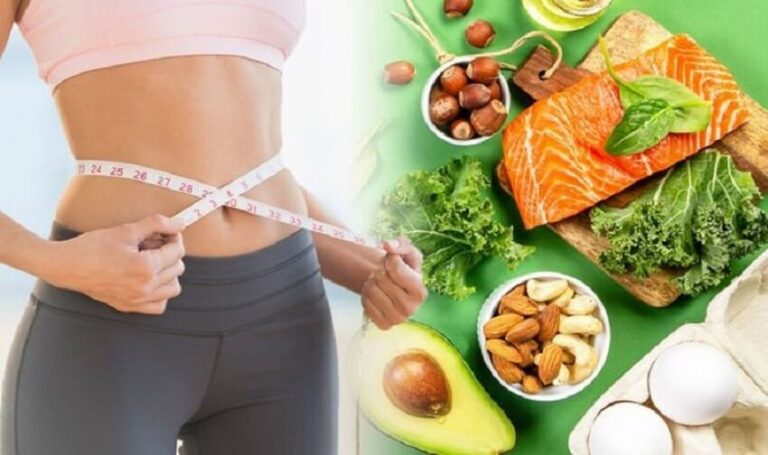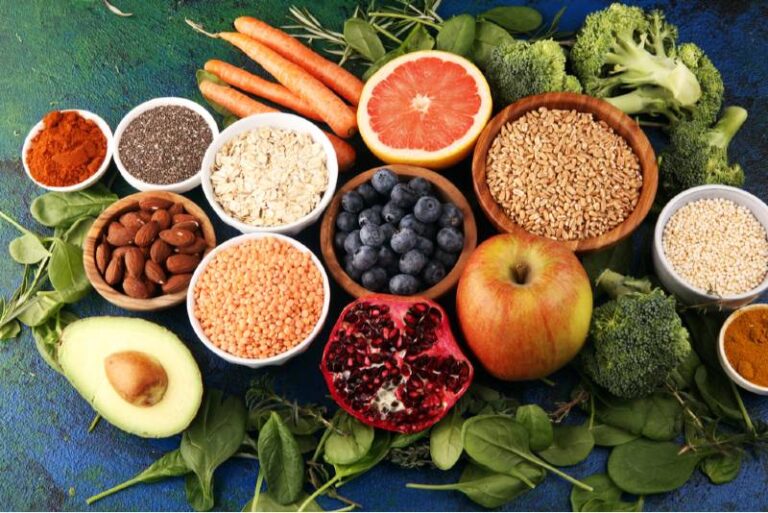More and more people adhere to a vegan diet. The reasons: are animal ethics, environment, health benefits, or even weight loss.
Whatever the reason, it’s essential to educate yourself before starting. While a vegan diet can be healthy, there is likely a lack of nutrients if not done correctly.
A vegan diet is based on foods of plant origin only (vegetables, cereals, nuts, algae, and fruits), mushrooms, and all products derived from plants. Vegans do not eat foods from animals, including dairy foods and eggs.
This article describes how to go vegan. So that beginners who start on this eating plan can do it healthily.
What is veganism?
Veganism is defined as a lifestyle that tries to exclude all forms of exploitation and animal cruelty. Whether for the consumption of food, clothing, or entertainment.
The vegan diet is the eating plan that best suits this philosophy of life.
It has been proven that you can get all the nutrients your body needs by following a vegan diet. (1,2,3,4)
However, several studies have confirmed an increased risk of lack of certain nutrients when it is not done correctly. When starting veganism, people tend to follow a monotonous eating plan. (4.5)
How to go on a vegan diet?
Vegans tend to be leaner, have lower bad cholesterol levels, and lower blood pressure. This translates to a lower risk of cardiovascular disease. (1)
However, eliminating all animal products from the diet has increased the risk of certain nutritional deficiencies. (15,16,17) Eating a vegan diet in a balanced and varied way is essential to avoid the lack of certain essential nutrients. Here is how to follow a healthy vegan diet, which foods are prohibited and which are allowed:
- Foods forbade in a vegan diet
All foods and products of animal origin are prohibited in veganism and all those that contain ingredients derived from animals. The foods prohibited in a vegan diet are:
- Red and white meats – (beef, chicken, duck, fish, tuna, lamb, quail, ostrich, etc.)
- Sausages and processed meat products – (sausages, salami, sausages, blood sausages, animal organs, etc.)
- Dairy – (cheese, yogurt, milk, buttermilk, casein, etc.)
- Eggs – (chicken, caviar, ostrich, etc)
- Seafood – (Prawns, squid, mussels, lobsters, etc.)
- Products derived from bees – (Honey, royal jelly, pollen, etc.)
- Products with animal collagen – (gelatin, hydrolyzed collagen, etc.)
- Foods allowed on a vegan diet
The foods allowed in veganism are derived from plants, legumes, algae, and microorganisms. In a vegan diet, the permitted foods are:
- Cereals (oats, millet, wheat, barley, corn, rye, spelled)
- Pseudocereals (amaranth, buckwheat, quinoa)
- Soy derivatives (tofu, seitan, textured protein)
- Nuts and derivatives (almonds, walnuts, macadamia, peanut butter, etc.)
- Legumes (lentils, beans, lima beans, chickpeas)
- Seeds (chia, flax, sesame, etc.)
- Edible mushrooms (shirataki, champignones, portobello, etc.)
- Vegetables (sweet potatoes, kale, spinach, tomatoes, etc.)
- Fruits (grapefruit, cherries, blueberries, banana, etc.)
- Seaweed and derivatives (spirulina, chlorella)
- Fermented (kombucha, sauerkraut, miso, tempeh)
- Spices (turmeric, pepper, salt, etc.)
Benefits of a balanced vegan diet
A balanced vegan eating plan has excellent health benefits. Studies have proven that a vegan diet has a lower risk of cardiovascular diseases, cancer, overweight and obesity, and arthritis, among others. The benefits of a healthy vegan diet are:
- Lower body weight
The vegan diet is an effective method to regulate weight. Research has confirmed that there is a tendency for vegans to have lower body mass indexes than those who eat omnivorously. (1.6)
Studies in which the vegan diet was used to lose weight had better results than traditional low-calorie diets. This is due to the high consumption of foods with plant fiber, making a person feel more full. (7.8)
- Regulate blood sugar levels
Research affirms that eating a healthy vegan diet is an effective method of regulating blood sugar levels. (8,1) This is particularly important for those with insulin resistance .
People who follow a vegan diet are up to 75% less likely to develop type 2 diabetes than non-vegans. (7,9,10)
- Less chance of cancer
The World Health Organization has classified processed meat products: sausages, cold cuts, and salami as type 1 carcinogens. In other words, they significantly increase the chance of getting cancer. (eleven)
According to this institution, diets rich in processed and red meats could be responsible for 50,000 deaths caused by cancer per year. Another study published in the journal Nature (4) affirms that both a vegan and a vegetarian diet are eating plans with a lower risk of cancer.
- Less risk of inflammation and osteoarthritis
In a study comparing the diet recommended by the American Heart Association against a vegan diet, up to 32% less sensitivity to inflammation-related proteins was observed. (12)
For this reason, it can be said that one of the benefits of eliminating meat from the diet is to reduce the risk of osteoarthritis, particularly after 60 years of age.
- May reduce the risk of neurodegenerative diseases such as Alzheimer’s
Reducing the risk of Alzheimer’s is one of the benefits of the vegan diet that has not yet been confirmed. While some preliminary studies have yielded positive results, others refute this theory. (13.14). More studies are needed before firm conclusions can be reached.
Supplements in a vegan diet
When making a vegan diet, the micronutrients that may be missing are vitamin B12, vitamin D, calcium, and Omega-3 fatty acids. (1) If a laboratory analysis detects the lack of any of them, the use of the supplements indicated below is recommended:
Vitamin B12 – cyanocobalamin. Cyanocobalamin supplements may be necessary when on a vegan diet. This is because it is the least commonly found vitamin in plant-based foods.
Iodine – In a vegan diet, iodine can be supplied through algae. If you do not have this type of food, be sure to buy iodized salt; consuming 5 g per day is enough.
Omega-3 Fatty Acids – The frequent lack of ALA-EPA-DHA is considered the Achilles heel of the vegan diet. Including supplements based on algae ( spirulina ) or chia seeds is one way to cover these nutrients.
Zinc: The oat and amaranth are two foods that can prevent a vegan lack of zinc. In the form of supplements, it is usually indicated in gluconate or citrate.
Vitamin D – The use of vitamin D supplements is unnecessary in most cases. 80-90% is produced by the action of ultraviolet rays on the skin. The remaining 10-20% can be covered by vegan-friendly foods such as mushrooms and soybeans.
Iron – When a vegan diet does not include foods with vegetable iron: cauliflower, lentils, nuts, the use of supplements may be necessary. In any case, it should always be indicated by a nutritionist doctor. Too much iron can have serious health consequences.
Calcium – Some vegans may find it difficult to eat sufficient amounts of calcium-rich foods. Including kale and almonds in your diet is one way to prevent supplement use. If you must also take calcium, it is recommended not to combine it with zinc or iron to increase assimilation.
Vegan Diet – Sample Weekly Menu
A correct weekly menu plan for vegans should include complex carbohydrates as its main component. These are whole grains, pseudo-cereals, and vegetables. In addition, sources of healthy fats and vegetable proteins cannot be lacking. Below is a sample weekly diet menu example of a vegan diet:
- Monday
- BREAKFAST: Coffee with almond milk, one whole-wheat toast, 1 apple, and tofu.
- MID-MORNING: 1 orange and a handful of nuts.
- LUNCH: Quinoa salad with mushrooms, kale, and red berries. 1 Green fruit Tea.
- SNACK: Whole grain vegan nachos with avocado and natural pineapple juice.
- DINNER: Pumpkin stuffed with vegan cheese, cucumber lemonade, ginger, and lemon.
- Tuesday
- BREAKFAST: Fresh orange juice, rye bread with avocado, and peach.
- MID-MORNING: 1 glass of vegetable milk with half a banana.
- LUNCH: Buckwheat with seitan, grated carrot, and tomatoes.
- SNACK: Nuts and raisins with green tea.
- DINNER: Vegetable tart with mushrooms and oat dough with a green salad. Dessert: Watermelon and melon, and chamomile tea.
- Wednesday
- BREAKFAST: Oatmeal porridge with apple and cinnamon.
- MID-MORNING: 1 tangerine and one glass of vegetable milk.
- LUNCH: Tofu sauteed in coconut oil. Quinoa salad and half an avocado. Green Tea.
- SNACK: 1 vegan detox shake with spirulina and green apple.
- DINNER: Eggplant Lasagna with lettuce, tomato and cucumber salad. ½ cup blueberries
- Thursday
- BREAKFAST: Fresh orange juice with chia seeds, rye bread with vegan cheese.
- MID-MORNING: 1 banana and whole-grain cookies.
- LUNCH: Milanesas de seitan. Arugula, kale, amaranth and tomato salad .
- SNACK: Whole wheat toast with peanut butter and white tea.
- DINNER: Vegan tacos with cactus and chickpeas.
- FridayBREAKFAST: Coffee with almond milk. Vegan oat pancake with red berries.
- MID-MORNING: 1 orange or kiwi.
- LUNCH: Buckwheat with shiitake mushrooms, tofu, spinach, and spicy sesame oil. 1 cup of strawberries. Green Tea.
- SNACK: 250 g of chopped fruits, a mix of nuts, and almond milk.
- DINNER: Vegan sushi bowl with mango and pineapple juice.
- Saturday
- BREAKFAST: Chai tea with vegan tofu sandwich.
- MID-MORNING: 1 handful of nuts, one apple.
- LUNCH: Brown rice with wok vegetables, mushrooms and teriyaki and mango sauce. Green Tea.
- SNACK: 1 tangerine and 1 glass of vegetable milk.
- DINNER: Miso soup with textured soy protein. 1 bunch of grapes.
- Sunday
- BREAKFAST: Fruit smoothie with vegetable milk. You spelled bread toast with tofu.
- MID-MORNING: Fruits
- LUNCH: Whole wheat pasta with olive oil, garlic, basil, tomatoes, and vegan cheese.
- SNACK: Green tea with oatmeal cookies.
- DINNER: Tempeh with broccoli, flax seeds, quinoa, and avocado. 1 cup of melon
Frequently asked questions when following a vegan diet.
A beginner usually has a long list of doubts when starting with this diet. To evacuate them, a series of frequently asked questions and doubts about the vegan diet are described below:
- Do vegans eat enough protein?
A vegan diet can perfectly cover the amount of protein needed per day. For example, tofu and seitan have the same amount of protein as meat. When starting veganism, care should always include at least one source of foods rich in plant protein in each main meal.
- How to substitute milk?
Milk of animal origin (goat, cow) can be perfectly substituted for its vegetable alternatives. Coconut and almond milk has the best flavor. However, they are usually higher in price. Its plant-based alternatives such as soy and oatmeal are the cheapest substitutes for animal milk.
- How to substitute the egg?
Eggs are one of the forbidden foods in a vegan diet. To substitute them, you can add half a cup of warm water to 50 g of chia, let it settle for about 10 minutes until it acquires a gelling consistency, and that’s it.
- Is the vegan diet allowed for children and adolescents?
Children and adolescents can follow a vegan diet without problems. Studies have disproved the myth that it can lead to growth problems. (2) However, it is recommended that before embarking on an eating plan of this type with your children, you evacuate all doubts with a professional nutritionist.
- Is eating soy bad for your health?
Soy is one of the vegan foods high in protein and phytoestrogens. Phytoestrogens can mimic estrogens in the body and can cause feminization in men. (15,16) Although more studies are still needed to verify its long-term effects, research suggests limiting the number of soy products as a prevention method.
- Is the vegan diet more expensive?
A vegan diet does not necessarily have to be more expensive. However, in some countries, it is difficult to find a variety of ingredients. Learning how to select foods and cook according to vegan rules is the best way to save money.
- When starting a vegan diet, do I have to take vitamin B12?
Unfortunately, many vegans do not seem to get enough vitamin B12. Transitioning from omnivore to vegan is associated with a lack of B12 after six months. (17,18,19,20)
Some natural plant foods, such as spirulina, may contain a form of this vitamin. However, it is not active in the human body (18).
Scientists are still looking for natural plant food sources with B12; some fermented ones have given good preliminary results. However, there is insufficient evidence to support that these are sufficient in the long term. (19)
If you cannot meet the recommended daily allowances by consuming fortified products, you should consider taking a vitamin B12 supplement.
- Is being vegan better for the environment?
In 2017, the journal Nature published a study comparing the impact on the ecology of an omnivorous, vegetarian, and vegan diet. (5)
To compare the impact of each diet on the environment, different factors were taken into account: soil conservation times, water consumption, and CO2 emission.
The result: the vegan diet was the most environmentally friendly. To see it more clearly, you can check the following graph:
Environmental impact on diets: Carbon dioxide (a), water (b), ecological (c) average impact on 3 omnivorous groups (O); (VG) egg-lacto-vegetarians; (V) vegans. (2)
ABSTRACT
Veganism is a lifestyle that can be done for animal, environmental, or health ethics reasons.
In a vegan diet, the prohibited foods are all those of animal origin or that include the use of animals in their preparation. All foods and products of plant origin are allowed.
The benefits of a correctly done vegan diet have been proven by science. These are a lower probability of developing cancer, less environmental impact, and prevention of diabetes and osteoarthritis.
Within six months of starting veganism, there is a risk of a lack of vitamin B12. Including supplements or foods fortified with B12 or supplements is essential to avoid deficiency of this nutrient.

